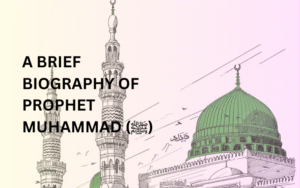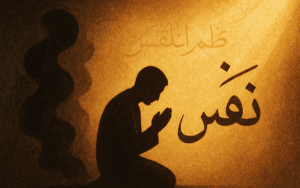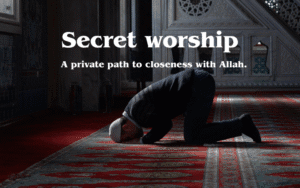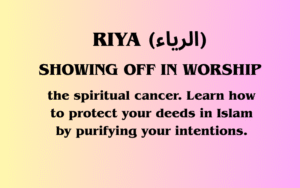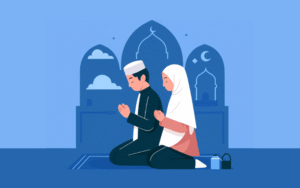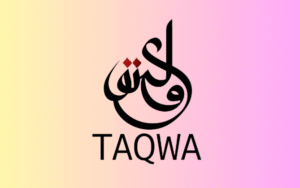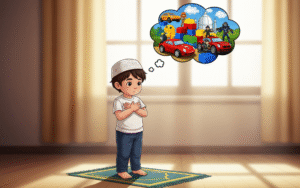Laylatul Miraj (shab e miraj): What to Do & What to AVOID
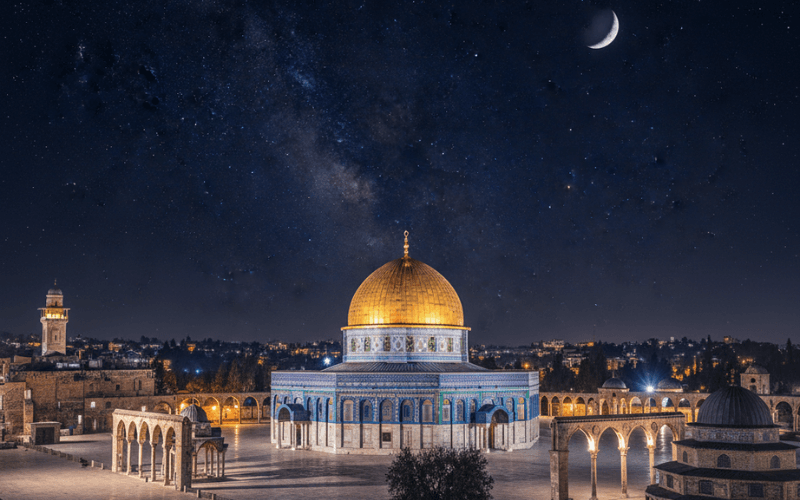
The month of Rajab holds a highly revered status in the Islamic calendar. Indeed, it is one of the four months that Allah the Almighty declared ‘Haram’ (Sacred) in the Holy Quran.
Allah the Almighty says:
إِنَّ عِدَّةَ الشُّهُورِ عِندَ اللَّهِ اثْنَا عَشَرَ شَهْرًا فِي كِتابِ اللَّهِ يَوْمَ خَلَقَ السَّمَاوَاتِ وَالْأَرْضَ مِنْهَا أَرْبَعَةٌ حُرُمٌ
“Indeed, the number of months with Allah is twelve [lunar] months in the register of Allah [from] the day He created the heavens and the earth; of these, four are sacred…”
(Surah At-Tawbah: 36)
During this sacred month, the most astonishing and miraculous event of Prophet Muhammad’s (PBUH) life took place. This event is ‘Al-Isra wal Mi’raj’ (The Night Journey and Ascension), also known as Laylatul Miraj.
This Miraj stands as an unforgettable event in Islamic history. Furthermore, it is a special honor that no prophet other than the final and greatest Prophet, Muhammad (PBUH), ever received. It was on this glorious night that Allah made the greatest gift for the Muslim Ummah—the five daily prayers (Salah)—obligatory (Farḍ).
However, many different ideas and practices are prevalent in society. These often concern specific rituals or celebrations for this night. Therefore, let’s explore its true significance, our recommended actions, and what we must avoid, all in the light of the Quran and Sahih Hadith.
What Are Isra and Miraj? Understanding the Two-Part Journey
This night’s journey essentially has two distinct parts:
1. Isra (الإسراء): Isra means ‘night journey.’ During this part, the Prophet (PBUH) traveled from Masjid al-Haram in Makkah to Masjid al-Aqsa in Jerusalem. He made this journey while riding a special, swift mount called ‘Buraq’.
Allah the Almighty mentions this journey in the first verse of Surah Al-Isra:
سُبْحَانَ الَّذِي أَسْرَىٰ بِعَبْدِهِ لَيْلًا مِّنَ الْمَسْجِدِ الْحَرَامِ إِلَى الْمَسْجِدِ الْأَقْصَى الَّذِي بَارَكْنَا حَوْلَهُ لِنُرِيَهُ مِنْ آيَاتِنَا ۚ إِنَّهُ هُوَ السَّمِيعُ الْبَصِيرُ
Meaning: “Exalted is He who took His Servant (Muhammad PBUH) by night from al-Masjid al-Haram to al-Masjid al-Aqsa, whose surroundings We have blessed, to show him of Our signs.”
(Surah Bani-israil: 1)
2. Miraj (المعراج): The word ‘Miraj’ (from the Arabic root ‘araja, technically mi’raj) means ‘ladder’ or ‘means of ascension.’ This marks the second part of the journey. From Masjid al-Aqsa, he ascended to the heavens with Jibril (AS). Along the way, he traversed the seven heavens one by one, meeting various Prophets and Messengers (AS). During his ascent, he saw Paradise (Jannah), Hell (Jahannam), ‘Bayt al-Ma’mur’, and many other signs of Allah’s creation.
Finally, he passed ‘Sidratul Muntaha’ (the Lote Tree of the utmost boundary) and came into the proximity of Allah the Almighty, as described in Surah An-Najm:
ثُمَّ دَنَا فَتَدَلَّىٰ – فَكَانَ قَابَ قَوْسَيْنِ أَوْ أَدْنَىٰ – فَأَوْحَىٰ إِلَىٰ عَبْدِهِ مَا أَوْحَىٰ
“Then he approached and came closer, And was at a distance of two bow lengths or even nearer. And He revealed to His Servant what He revealed.”
(Surah An-Najm: 8-10)
This entire event is known as ‘Laylatul Miraj‘. It is definitively proven by the Quran and numerous ‘Mutawatir’ Hadiths. While the journey is clearly mentioned, those searching for ‘shab e miraj in quran‘ will find the event described in two key places. Specifically, Surah Al-Isra, verse 1 describes the ‘Isra’, and Surah An-Najm alludes to the ascension (Miraj).
A Brief and Authentic Account: The History of Shab e Miraj
According to Hadith narrations, the Prophet (PBUH) was in the Hatim or at the house of Umm Hani. Jibril (AS) came and opened his chest. Then, he washed it with Zamzam water and filled it with Iman (faith) and Hikmah (wisdom).
The Journey Begins: He then mounted the ‘Buraq’ and reached Bayt al-Maqdis (Masjid al-Aqsa) in the blink of an eye. There, he led all the previous Prophets and Messengers (AS) in a two-rak’at Salah.
The Ascension (Miraj): Afterwards, the Miraj, or journey to the heavens, began.
- He met Prophet Adam (AS) on the first heaven.
- Prophet Yahya (John) (AS) and Prophet Isa (Jesus) (AS) on the second heaven.
- Prophet Yusuf (Joseph) (AS) on the third heaven.
- Prophet Idris (Enoch) (AS) on the fourth heaven.
- Prophet Harun (Aaron) (AS) on the fifth heaven.
- Prophet Musa (Moses) (AS) on the sixth heaven.
- Prophet Ibrahim (Abraham) (AS) on the seventh heaven.
In the Presence of Allah: After passing ‘Sidratul Muntaha,’ he came into the presence of Allah. It was there that Allah initially obligated fifty (50) daily prayers upon his Ummah.
The Gift of Five Daily Prayers: On his return, he met Prophet Musa (AS) again on the sixth heaven, who advised him to ask Allah for a reduction. The Prophet (PBUH) went back to Allah several times, and Allah the Almighty reduced it to five (5) daily prayers. However, He promised the reward of fifty (50) for these five.
Discussion on the Exact Date of the Miraj Night
Many people in our society widely believe that the Miraj occurred on the 27th night of Rajab. However, this is largely an assumption.
Among Muhadditheen and historians, multiple opinions exist about the exact date, month, or even year of the Miraj. For example, some say it occurred in the 10th year of Prophethood, while others say the 12th or 13th year. Similarly, some mention the month of Rajab, while others suggest Ramadan or Rabi’ul Awwal.
In reality, no definitive, categorical proof (dalīl) establishes the date as the 27th of Rajab.
Perhaps the divine wisdom (Hikmah) behind this ambiguity is that Allah wanted Muslims to internalize the core lessons of the Miraj. This is better than becoming engrossed in rituals centered around a specific date.
The Core Lessons and Gifts of Isra and Miraj
The event of Miraj was not just a miraculous journey. Indeed, it was also a source of special gifts and profound lessons for the Ummah.
1. The Importance of Salah: The greatest gift of Miraj is the five daily prayers. Allah the Almighty summoned His servant to His presence to bestow this command, which proves the immeasurable importance of Salah. This is why it is said, “Salah (prayer) is the Miraj of the believer.”
2. The Last Two Verses of Surah Baqarah: On this night, Allah gave the Prophet (PBUH) the last two verses of Surah Baqarah (2:285-286). These verses contain the core principles of faith and Allah’s special mercy for the Ummah.
3. The Reward for Tawhid (Monotheism): On this night, good news was delivered.
“Allah will forgive the sins (besides Shirk) of any person from the Ummah of Muhammad (PBUH) who dies without associating partners with Him (Shirk).”
(Sahih Muslim, Hadith No: 173)
4. The Honor of Servitude: At the beginning of Surah Al-Isra, Allah addresses His Prophet (PBUH) as ‘Abdihi’ (His servant). Consequently, this teaches us that the greatest honor in the sight of Allah is to be His sincere ‘Abd’ (servant/slave).
Laylatul Miraj: What Are the Recommended Practices?
Many people search for special prayers, fasting, or specific rituals for this night. It is crucial to remember this clearly:
It is important to note that neither the Quran nor the Sahih Hadith prescribe any specific Salah, special method of worship, or a particular day of fasting for Laylatul Miraj. This is unlike the specific guidance provided for Laylatul Qadr or the Day of Arafah.
The Prophet (PBUH) himself and his noble Companions (RA) did not observe this day or night with any special festival or ritual. Therefore, the recommended actions are:
1. Reflect on the Lessons of Miraj: The primary action for this Laylatul Miraj is to discuss, read, and reflect on the story of Miraj and its profound lessons. Most importantly, one should deeply comprehend the importance of Salah.
2. Be Punctual and Sincere in Salah: The true celebration of Miraj is to establish the five daily prayers correctly, on time, and with full concentration (Khushu).
3. General Voluntary Worship: If someone wishes to perform acts of worship during this night, they may perform general voluntary (Nafl) acts of worship (such as Tahajjud prayer, Quran recitation, Dhikr, sending Durood, Tawbah-Istighfar, and making Du’a) without designating any specific method or number of rak’ahs. However, this should not be considered a ‘special deed’ exclusive to this night.
Laylatul Miraj: What to Avoid (Innovations and Bid’ah)
A person should not perform any act to seek reward that the Prophet (PBUH) or his Companions did not do. The religion considers such acts to be new additions, or ‘Bid’ah’ (religious innovations).
1. Specific ‘Salat al-Miraj’: Society has prevalent practices like a ‘special prayer for the miraj night‘. This prayer, sometimes called ‘Salat al-Miraj’, might be 12 rak’ahs, 14 rak’ahs, or another specific method. However, these practices have no basis in Sahih Hadith. In fact, renowned scholars (like Imam Ibn Taymiyyah (RH)) have declared them to be baseless.
2. Fasting Specifically on the 27th of Rajab: Some people fast specifically on the 27th of Rajab. They believe they can earn extraordinary rewards, like that of ’60 months’ or ‘100 years of worship’. However, this practice is based on narrations that Hadith scholars classify as fabricated (Mawdu’). Therefore, singling out this day for fasting with a belief in its unique virtue is a Bid’ah.
3. Festivals and Ceremonies: Furthermore, Islamic Shari’ah does not support certain celebratory activities for this night. These include illuminating buildings, distributing sweets or special foods, and arranging feasts in mosques or homes. Similarly, holding loud, collective Dhikr or Milad gatherings is also not supported.
4. Narrating Fabricated and Baseless Stories: Many imaginative and fabricated stories about the Miraj are popular in society. For instance, some people believe that the ‘Attahiyyat’ recited in Salah is the actual dialogue between Allah and His Prophet (PBUH) during Miraj. This concept, however, is incorrect. In truth, “the Prophet (PBUH) himself taught the ‘Attahiyyat’ to his companions, as narrated by Abdullah ibn Mas’ud (RA) (See: Sahih Muslim, Hadith No: 402).”
Conclusion
In conclusion, Laylatul Miraj is not a night for festivals; rather, it is a night for profound learning and realization. The greatest and most living lesson from this night is undoubtedly Salah. Therefore, let us cling to the core message of this event. We should strive to attain closeness to Allah by establishing the five daily prayers and abstain from all forms of baseless rituals and Bid’ah.
Frequently Asked Questions
What is Isra and Miraj?
Al-Isra wal Mi’raj is a miraculous two-part journey of the Prophet Muhammad (PBUH), which took place in the month of Rajab. The first part, ‘Isra,’ was a night journey from Masjid al-Haram in Makkah to Masjid al-Aqsa in Jerusalem on a mount called Buraq, as mentioned in Surah Al-Isra. The second part, ‘Miraj,’ was his ascension from Jerusalem through the seven heavens, where he met other prophets and was finally brought into the presence of Allah the Almighty, as alluded to in Surah An-Najm.
Is Laylatul Miraj on the 27th of Rajab?
While many people in society widely believe Laylatul Miraj occurred on the 27th night of Rajab, the article states this is largely an assumption. In reality, there is no definitive, categorical proof (dalīl) establishing this specific date. Islamic historians and Muhadditheen hold multiple opinions, with some suggesting other months entirely, like Ramadan or Rabi'ul Awwal, or different years of the Prophethood.
Are there special prayers for Laylatul Miraj?
No, the article clarifies that neither the Quran nor the Sahih Hadith prescribe any specific Salah or special ritual for Laylatul Miraj. Practices like a 'special prayer for the miraj night' (sometimes called 'Salat al-Miraj' of 12 or 14 rak'ahs) are prevalent in some societies but have no basis in authentic sources. Renowned scholars like Imam Ibn Taymiyyah (RH) have declared these specific, fabricated innovations to be baseless (Bid'ah).
